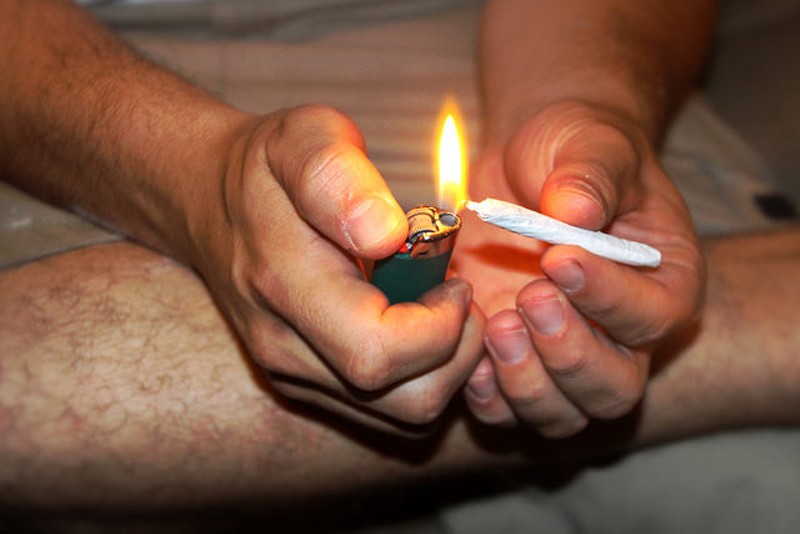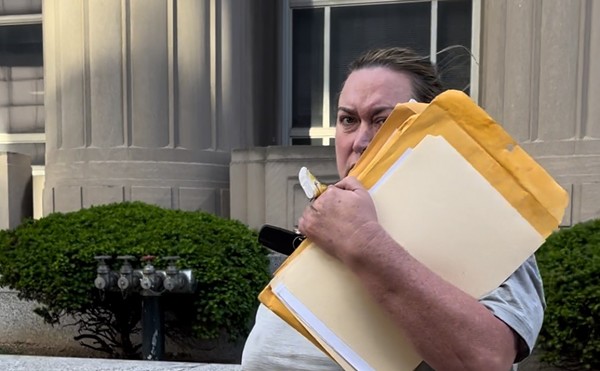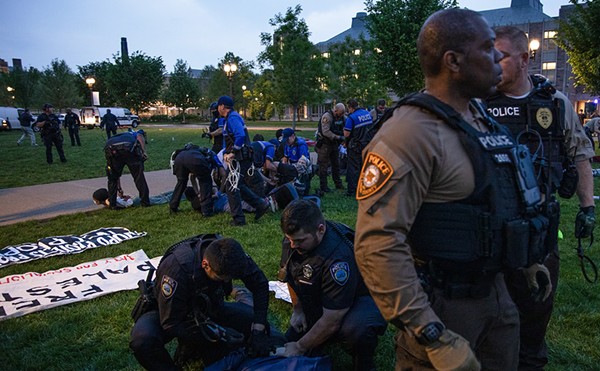Try not to freak: When it comes to smoking weed, the kids are actually doing alright.
According to an unprecedented Washington University School of Medicine analysis of more than a decade's worth of survey data, the rate of adolescents and teens across the nation who have toked in the past 12 months has dropped significantly — by ten percent, in fact — since 2002.
"It’s the first time anyone has ever put together all the data," says Dr. Richard Grucza, a Washington University researcher and lead author of the study, which is published in the June issue of the Journal of the American Academy of Child & Adolescent Psychiatry. Along with a team of researchers, Grucza dug into a trove of data collected by the National Survey on Drug Use and Health between 2002 and 2013. The survey's responses were gathered from 216,852 adolescents aged twelve to seventeen living in all 50 states.
And the study has more to offer beyond its findings of a clear reduction in marijuana usage. As Grucza explains, the researchers have actually developed a hypothesis of why adolescent problems related to the use of marijuana have also decreased.
The hypothesis is pretty simple. It also subverts what some anti-pot groups consider conventional thinking about the leafy green plant.
Kids, the data showed, seem to be getting into less trouble overall, including behavioral problems and things like fighting and property crime. Grucza and his team believe that the decrease is connected to both the 10 percent drop in pot use and a 24 percent drop in "marijuana disorders," a term that refers to problems associated with substance abuse in general, such as developing dependency or having trouble in school and in relationships.
"There’s a lot of work historically that shows, especially among kids, that none of these things occur vacuum," explains Grucza. "If a kid is using marijuana at fifteen years old, it's probably not just because he likes to get high. He's also running with the wrong kind of kids and getting into trouble. We’re seeing a decline in this other kind of trouble, and that seems to be driving the decline and prevalence in marijuana problems."
Put another way, the data is basically telling us that kids who avoid problem behaviors are also less likely to have issues with marijuana. In this light, marijuana use is less a gateway to trouble and more a symptom of it.
That still leaves a nagging question: How are kids avoiding problem behaviors in the first place? A possible answer, says Grucza, is that we're getting better at identifying kids with behavioral or psychiatric problems and getting them the help they need.
"If we're seeing a decline in these behaviors, in my mind that's signaling an overall improvement in adolescent mental health. It could be that we’re just treating psychiatric disorders better in children."
Of course, Grucza's work is far from over. As more data is collected, researchers will be able to better understand the drug habits of kids living in states with legalized marijuana — a club Missouri could soon join.
"We can’t rule out the fact that, maybe, marijuana legalization is having some kind of effect, or maybe these rates would be dropping even faster if these cultural changes weren't happening," Grucza observes. "To me, this research just shows that there’s a large advantage in creating a resilience to drug problems and raising healthy kids."
Follow Danny Wicentowski on Twitter at @D_ Towski. E-mail the author at [email protected]
Even with Legalization, Kids Are Smoking Less Pot — And Doing Better Than Ever
[
{
"name": "GPT - Leaderboard - Inline - Content",
"component": "41932919",
"insertPoint": "5th",
"startingPoint": "3",
"requiredCountToDisplay": "3",
"maxInsertions": 100
}
]






